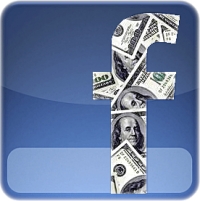 Facebook has adjusted its policies on promotions and contests conducted via the social network, eliminating prohibitions against such formerly controversial items as “alcohol, dairy, gambling & gasoline.” (Dairy? Really? Is Mark Zuckerberg lactose intolerant or was his mother threatened by a rabid bovine while carrying the future internet titan in her womb?) Brands looking to promote their products and/or services will now defer to local laws rather than have Facebook crack the whip itself. (Read Facebook’s new promotion guidelines here.) So gambling companies, on your marks, get set… MARKET!
Facebook has adjusted its policies on promotions and contests conducted via the social network, eliminating prohibitions against such formerly controversial items as “alcohol, dairy, gambling & gasoline.” (Dairy? Really? Is Mark Zuckerberg lactose intolerant or was his mother threatened by a rabid bovine while carrying the future internet titan in her womb?) Brands looking to promote their products and/or services will now defer to local laws rather than have Facebook crack the whip itself. (Read Facebook’s new promotion guidelines here.) So gambling companies, on your marks, get set… MARKET!
Not so fast. Facebook’s abdication of responsibility doesn’t mean companies can ignore laws laid down by countries, states or municipalities. Zuckerberg (unlike America) is simply not interested in being the world’s policeman. For starters, it’s expensive. So is giving legal advice, if some company subsequently gets hauled into court for doing something you assured them was okay. Crucially, the move increases Facebook’s revenue potential by expanding the list of companies that had previously been held back from promoting via Facebook. And if Facebook really does intend to go the IPO route in the near future, showing a growing revenue stream will give its share price range a healthy bump.
While it appears quite adept at shedding responsibility, Facebook can’t seem to shake those damn Winklevoss twins. The twins, who claim Zuckerberg shortchanged them in the $65m settlement they received for their alleged role in Facebook’s creation, had their case dismissed by a judge last month, and a federal appeals court just refused to reconsider that decision. Undaunted, Cameron and Tyler Winklevoss now plan to petition the US Supreme Court to hear their case. (Let… it… go.) But the twins are themselves being sued by Wayne Chang, a Boston entrepreneur who claims he aided the twins in setting up the company that they claimed provided the spark that created Facebook. As such, Chang wants up to half of the twins’ $65m settlement. Unlike the twins, Chang’s suit was allowed to proceed by a Massachusetts judge last week. Call it Winklekarma.





